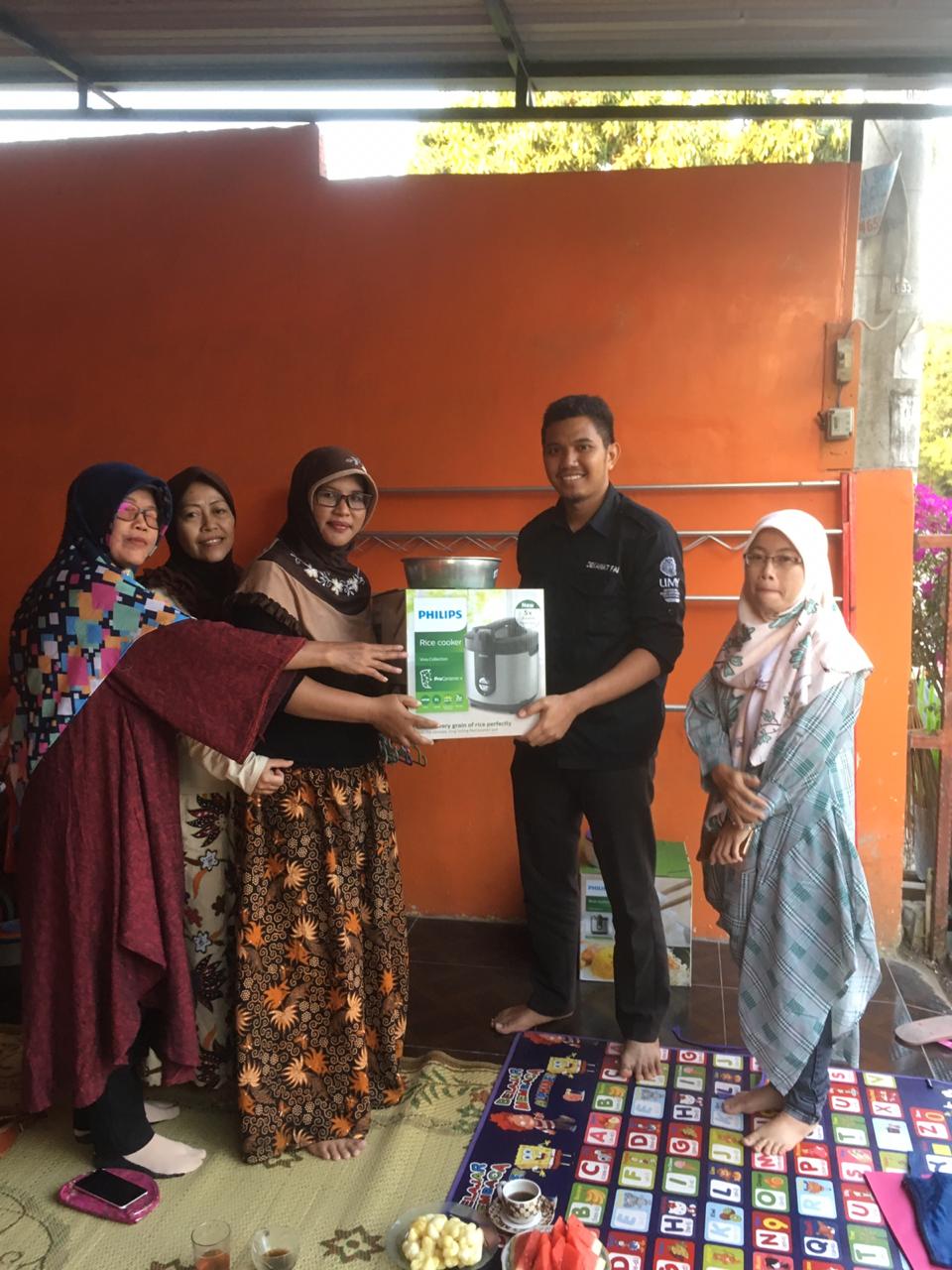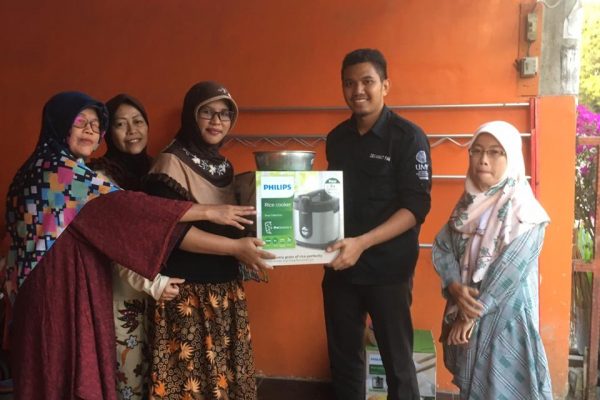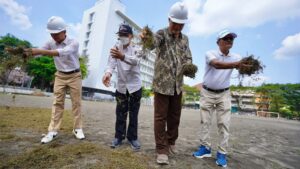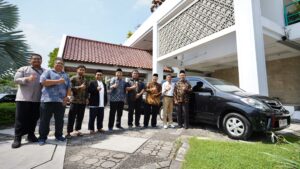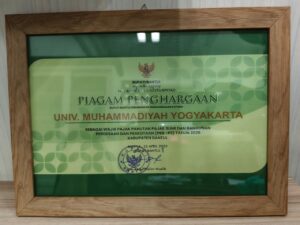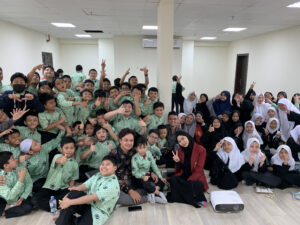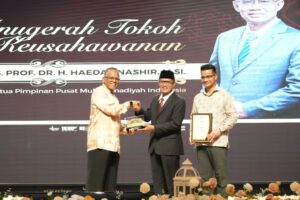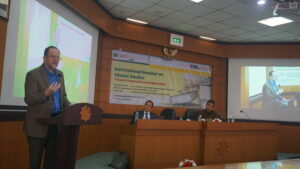The people of Kasihan village RT 6, Tamantirto regency, Bantul subdistrict, Special Region of Yogyakarta has various jobs and professions. Most of the breadwinners in this village are farmers and ranchers, while the women make traditional snack which they sell in the houses and traditional markets surrounding the village such as pasar Gamping, pasar Niten, and other markets around the village.
However, there are no union group that can be used to develop said businesses. Therefore, three lecturers of Universitas Muhammadiyah Yogyakarta (UMY); Muhammad Zakiy, S.EI., M.Sc., Linda Kusumastuti Wardana, S.Pd., M.Sc., and Rhafidilla Vehrynda, S.I.Kom., M.I.Kom., founded a joint business group cooperative store as part of their social services.
The process of founding the store took place from April to June, and it focuses on acquiring permits and trademarks for the joint business group (KUB) which cooperated with the Industries and Trade Office of DIY. Then, the process and training for creating a distinct packaging and its standardization begun, followed by the formation of marketing management to expand the market for snacks.
“To make this activity succeed, our team hosted practical training for packaging and marketing helped by an expert in marketing management and helped initiate the founding of the cooperative store by socializing and informing the villagers of a Syariah (Islamic) cooperative store. With better marketing management through offline and online media, we hope to reach a wider area for the marketing of this KUB snack,” stated Zakiy as the head of this social services group.
Meanwhile, the main issue for the locals regarding the development of the snack industry is the starting capital. A low income from the head of the families leads to the lack of any savings to help kickstart or develop their businesses. The people of Kasihan village RT 6 would rather borrow money from loan sharks than the bank because of the various requirements and assurance fees the bank requires tend to complicate matters for the villagers. Therefore, the creation of a Syariah cooperative store is important to help the villagers with monetary problems by being an alternative for providing starting capital.
“The creation of a Syariah cooperative store in Kasihan village has a high potential to succeed, considering the locals’ interest in the founding of a cooperative store. This is proven by a survey conducted by the services and interview team on several locals that already own their own from-home businesses. We hope that what we initiated can develop into an actual business,” Zakiy added.
The integration of local businesses into a joint business group (KUB) is hoped to help improve the local economic welfare for the people of Kasihan RT 6. (Hbb)
